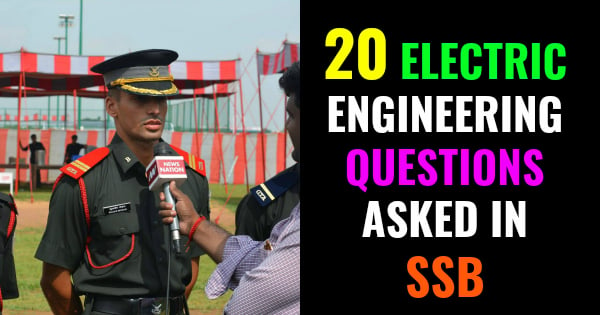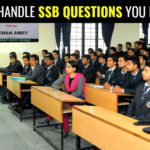The personal interview is always related to the personal topics of the candidates. But in direct entries, where the engineers are called for the interview, sometimes, technical questions related to the stream, are also asked by the IO to check the theoretical knowledge of the candidate. These are not too tough and deep as it is just to check the basic knowledge of the candidates. For electrical engineers, here are 20 questions which are asked by the IO.
- Why are AC devices used over DC devices?
Ans – AC devices and systems are easy to maintain, the plant cost for AC transmission is lower than that of DC. Along with that, the AC Is release through the electricity sources which is directly used by AC devices rather than converting to the DC. It is easy to sort out any last fault in AC systems.
- What is the difference between a generator and an alternator?
Ans – Sir in the generator the coil remains stationary and armature rotates, while in an alternator, the armature remains stationary and the coil rotates.
- What are the types of semiconductors?
Ans – Sir, Majorly there are two types of conductor 1) Intrinsic (Pure) 2) extrinsic (Doped). The extrinsic are further classified into n-type and p-type semiconductors.
- What is the major difference between Digital and Analog signals?
Ans – Sir, in Analog signals, the information is converted into electric pulses of varying amplitude. While in Digital, the signals are converted into binary form (0 and 1) where each pulse denote 2 amplitudes.
- What is rectifier and what are its types?
Ans – Sir, a rectifier is a device that converts AC into DC. There are two types of rectifiers i.e. half wave and full wave rectifiers.
- What is knee voltage point?
Ans – The forward voltage at which the current through the PN junction starts increasing rapidly is called knee voltage.
- What is MARX Circuit and where is it used?
Ans – Sir, it is a circuit used to charge all capacitors of the generator in parallel and discharging them in series. And is used when voltage required for testing is more than the available.
- What is the principle behind the working of an electric motor?
Ans – When a current carrying conductor is placed in a magnetic field (Coil), it causes twisting movement called torque which leads to the rotation of the armature.
- What are the different types of Dc motors?
Ans – Shunt motor, Service Motor, and Compound Motor.
- Tell me what will happen in case I connect a lamp with two-phase?
Ans – Sir, if the voltage difference between the phases is large, in it will cause damage to the lamp, if the difference is small, then it depends on the type of lamp whether it will glow or not. If the voltage is same, then the lamp will glow.
- If I buy an air conditioner, it is mentioned that its capacity is 1 ton. What does it mean?
Ans – Sir, the AC is built to remove heat from the room or a cabin, so it means that it can remove 1000 k.cal of heat in 1 hour.
- Tell me the difference between a fuse and a circuit breaker.
Ans – Sir, there is some common difference between them. A fuse has smaller capacity then circuit breaker. When the circuit is broken, a fuse has to be replaced but a circuit breaker not required to replace.
- What type of losses are there in a transformer?
Ans – Sir, these are Hysteresis loss and eddy current loss.
- What are the main function and basic difference between of an invertor and a UPS?
Ans – Sir, it is used to storing electricity and provide it when the main electricity source is out of electricity. The basic difference between them is the capacity. The capacity or power backup of invertor is much more than that of UPS.
Current Affairs questions will be from last 5-7 months (for AFCAT, NDA, CDS, TA)
- Current Affairs Jan 2017 eBook [300+ Questions Included]
- Current Affairs Feb 2017 eBook [600+ Questions Included]
- Current Affairs March 2017 eBook [800+ Questions Included]
- Current Affairs April 2017 eBook [750+ Questions Included]
- Current Affairs May 2017 eBook [900+ Questions Included]
- Current Affairs June 2017 eBook [1100+ Questions Included]
- Current Affairs July 2017 eBook [1200+ Questions Included]
- Current Affairs August 2017 eBook [1000+ Questions Included]
- Which type of motors are used in trains?
Ans – Sir, DC series motors are used in trains.
- What is the difference between a step up and a step-down transfer?
Ans – Sir, the step-up transformer increases the voltage while step-down reduces the voltage of the electricity. Another difference is that step up transformer has more secondary coils and step down has more primary coils in it.
- What are the types of DC generators?
Ans – There are 2 types of DC generators, separately excited and self-excited generators.
- What is the difference between a motor and a dynamo?
Ans – Sir, a dynamo convert’s mechanical energy into electrical energy while a motor convert’s electrical energy into mechanical energy.
- What is shunt?
Ans – Sir, Shunt is a device that provides electricity to pass through another way having low resistance value.
- What would happen if we supply 220 V DC current through a tube light?
Ans – Sir, the tube lights are built to operate in AC circuits and have low resistance. So when DC will be supplied, due to low resistance and high current if will damage.
Conclusion – The above question will give hints to those candidates, who have completed their engineering in electrical branch and are aiming to attend SSB. The IO is not too proficient in the engineering field but has some precise basic knowledge of everything. So, the candidates need to have accurate and clarified basic knowledge of their stream, which is usually asked in the personal interview in SSB.

Best SSB Book –> Let’s Crack SSB Interview
Best AFCAT Book –> Let’s Crack AFCAT
Best EKT Book -> Let’s Crack EKT
Best CDS Book –> Let’s Crack CDS
Best NDA Book -> Let’s Crack NDA
To crack SSB and AFSB Interview get “Let’s Crack SSB Interview” Book from Flipkart. Trusted by thousands of defence aspirants
Also Download Helpful eBooks:













